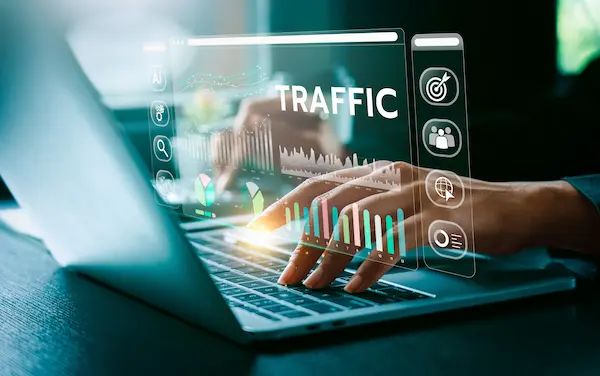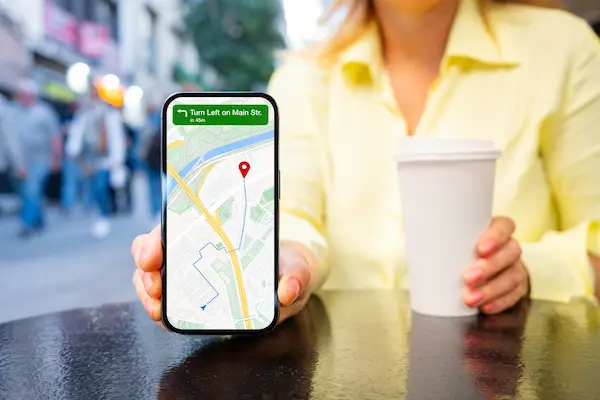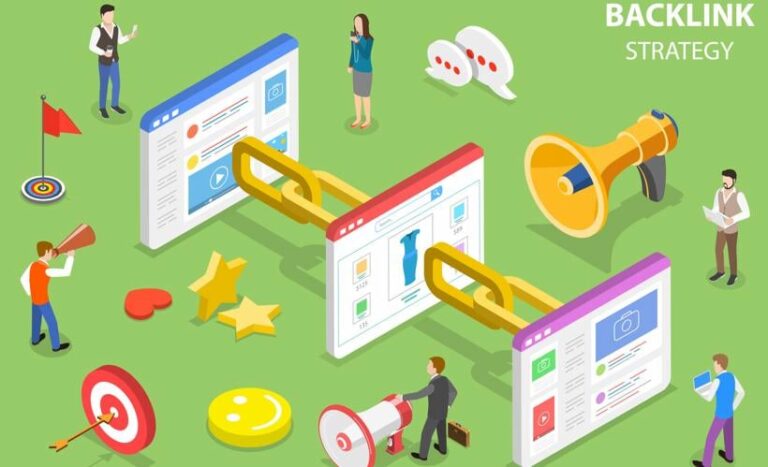Struggling to Stand Out Online? How SEO for Personal Injury Lawyers Drives Real Client Growth
In today’s competitive legal landscape, personal injury law firms are finding it increasingly challenging to stand out. Whether you’re a seasoned personal injury attorney or a new law firm, search engine optimization (SEO) plays a critical role in your ability to attract new clients. Search Engine Optimization for lawyers isn’t just about showing up in search results—it’s about making sure you appear in front of the right audience. SEO for personal injury lawyers is no longer optional in today’s competitive legal market.
It’s a necessity if you want to stay ahead of the competition and attract more clients. In this blog, we’ll explore how SEO for personal injury lawyers can help your firm drive traffic, build authority, and ultimately attract the clients you need. For a deep dive into how search engine optimization for lawyers can make a difference, contact EverConvert Digital Marketing.
Why SEO Is Essential For Personal Injury Lawyers in a Competitive Market
As the digital world becomes more intertwined with everyday life, potential clients are increasingly turning to search engines to find legal help. Whether it’s a person searching for a “personal injury lawyer near me” or a “car accident attorney,” search engines are the go-to platform for finding trusted legal professionals. This means that personal injury lawyers must ensure they are visible in the search engine results pages (SERPs). However, the personal injury legal market is crowded. Personal injury law firms are competing for a limited pool of clients, and the success of their marketing efforts heavily depends on effective SEO. Without a solid SEO strategy, your law firm could easily get lost in the sea of competitors.
So, how can you rise above the competition? SEO for Personal Injury Lawyers involves optimizing your website and online presence to rank higher in search engine results for relevant keywords like “personal injury attorney,” “car accident lawyer,” and “best injury lawyer near me.” This is where SEO strategies such as keyword research, on-page SEO, local SEO, content marketing, and link building come into play.
How Effective SEO Boosts Your Law Firm’s Website
SEO optimizes your law firm’s website to rank higher when potential clients search for legal help. When someone searches “personal injury lawyer near me” or “car accident lawyer,” effective SEO puts your firm at the top—exactly when they need a lawyer most.
Drives Qualified Traffic To Your Law Firm’s Website
SEO attracts the right visitors—people actively seeking a personal injury lawyer after accidents or injuries. Through targeted keywords and local SEO, your lawyer website reaches clients ready to hire, delivering sustainable growth beyond traditional advertising.
Builds Lawyer Authority
High rankings signal trust. When your personal injury lawyer site ranks at the top, Google tells users your firm is credible and experienced. For any personal injury lawyer, this authority is critical—injured clients want a lawyer they can trust. Strong SEO establishes your firm as the local legal expert.
Converts Visitors Into Clients for Your Law Firm
SEO doesn’t just drive traffic—it converts. An optimized lawyer website features clear calls-to-action, mobile design, easy navigation, and valuable content. Visitors immediately understand how your personal injury lawyer practice helps and how to book a consultation.
Keyword Research for Personal Injury Lawyers: Targeting the Right Audience
The first step in creating an effective SEO strategy for personal injury lawyers is keyword research. The goal of keyword research is to identify the specific terms potential clients are searching for when they need legal assistance. For instance, using tools like Google Keyword Planner, you can discover keywords like:
- “personal injury lawyer”
- “personal injury attorney”
- “car accident lawyer”
- “best injury lawyer near me”
- “local injury lawyers”
- “personal injury law firms”
Why is keyword research important? The answer is simple: if you want to be found by your ideal clients, you must target the keywords they’re using to search for services like yours. However, just targeting broad keywords isn’t enough. It’s also essential to identify long-tail keywords (longer, more specific search phrases), which often have lower competition and a higher conversion rate. Examples include “best personal injury lawyer in [city]” or “top-rated car accident lawyer.”
To truly optimize your SEO, it’s important to use the right mix of general and long-tail keywords. This way, you’re not only targeting people in need of a lawyer but also those actively looking for specific legal services in your geographic area.
On-Page SEO for Personal Injury Lawyers: Optimizing Your Website
Once you’ve identified target keywords, focus on on-page SEO—optimizing individual pages to rank higher and convert visitors. Effective on-page SEO improves visibility while helping potential clients find information and contact your lawyer practice quickly.
Title Tags and Meta Descriptions: Drive Clicks
Your title tag is a potential client’s first impression. Include your primary keyword like “personal injury lawyer” or “car accident lawyer” and keep it under 60 characters.
Example: Experienced Car Accident Lawyer in [City] | Free Consultation
Meta descriptions don’t directly impact rankings but boost click-through rates. Summarize your page and include a call-to-action.
Example: Looking for a car accident lawyer in [City]? Our personal injury lawyers help clients recover compensation—call for a free consultation.
Optimized titles and descriptions reinforce your SEO for personal injury lawyers strategy by aligning with search intent and encouraging engagement.
Content Marketing: Answer Client Questions
Content marketing is essential for SEO for personal injury lawyers. High-quality content—blog posts, FAQs, case studies—builds trust while helping your personal injury lawyer site rank for multiple keywords. Naturally integrate terms like “personal injury lawyer” and “car accident lawyer” while providing genuine value.
A blog titled “What to Do After a Car Accident” lets you target keywords like “personal injury lawyer in [city]” while educating prospects. Cover topics like:
- Types of personal injury cases
- The legal claims process
- Why clients choose your lawyer firm
Long-tail keywords like “best personal injury lawyer for car accident in [city]” capture clients ready to hire a lawyer. Strong content supports SEO for personal injury lawyers while establishing your firm’s credibility.
Header Tags and Internal Links: Structure Your Site
Header tags organize content for readers and search engines. Use one H1 with your main keyword (“Best Personal Injury Lawyer in [City]”), then H2 and H3 tags for subtopics. Strategic keyword placement in headers improves SEO for your website’s performance.
Internal linking connects related pages (link “Slip and Fall” to “Personal Injury Claims”), helping search engines crawl your lawyer website while keeping visitors engaged. Together, optimized headers and internal links strengthen your SEO strategy, boost rankings, and keep potential clients exploring your site.
Local SEO for Personal Injury Lawyers: Dominating Local Searches
As a personal injury lawyer, your target audience is likely local, making local SEO one of the most crucial aspects of your strategy. Local SEO involves optimizing your website and online presence to rank well in local search results. Here’s how to do it effectively:
Google Business Profile Optimization
Claim and optimize your Google Business Profile (formerly Google My Business) listing. This allows you to show up in local search results and Google Maps, making it easier for potential clients to find you. Fill in all your business details, such as name, address, phone number, hours of operation, and website link. Encourage satisfied clients to leave reviews, as positive reviews help boost your local SEO.
Local Citations and Directories
Ensure your business information is consistent across all online directories and local citations, such as Yelp, Yellow Pages, and legal-specific directories. Consistent NAP (name, address, phone number) details across these platforms help Google verify the legitimacy of your business and improve local rankings.
Local Keywords
Incorporate local keywords in your content, meta tags, and URLs. For example, “personal injury lawyer in [City],” or “best car accident lawyer near [City].” These keywords help you appear in local search results when potential clients are looking for a lawyer in your area.
Link Building: Gaining Authority for Personal Injury Lawyers
To boost website authority, link building is one of the most powerful ranking strategies. Backlinks from authoritative websites signal to Google that your personal injury lawyer site is credible and trustworthy. High-quality backlinks boost rankings, drive traffic, and establish your lawyer firm as a legal authority.
Not all backlinks are equal—focus on links from reputable legal sources and local organizations. Here are proven link-building strategies for personal injury law firm sites:
Guest Posts: Showcase Your Lawyer Expertise
Write articles for established legal blogs and publications. Guest posting lets personal injury lawyers demonstrate expertise while earning authoritative backlinks. Contribute content on topics like:
- Filing a personal injury claim
- Common injury cases and legal processes
- Dealing with insurance companies
Quality guest posts position your personal injury lawyer practice as an industry leader while improving SEO rankings through credible backlinks.
Local Partnerships: Build Community Connections
Personal injury lawyers benefit from local link building. Partner with local nonprofits, businesses, schools, or charities. Sponsor events, offer pro bono services, or speak at seminars in exchange for backlinks from their websites. Local links strengthen your SEO strategy by signaling community relevance—crucial for ranking in searches like “personal injury lawyer in [city].”
Press Releases: Leverage Media Coverage
Distribute press releases about significant wins, new offices, or awards. Media outlets with high domain authority may publish your news, generating valuable backlinks. Press releases improve SEO rankings while increasing brand visibility and attracting potential clients to your lawyer practice.
Online Legal Directories: Establish Credibility
List your personal injury lawyer firm on directories like Avvo, FindLaw, Justia, and Martindale-Hubbell. These trusted platforms provide authoritative backlinks and help clients find your lawyer services. Complete profiles with accurate NAP (name, address, phone), service descriptions, and client reviews to boost SEO efforts.
Social Media: Drive Indirect Benefits To Your Law Firm
While social media links don’t directly impact rankings, active engagement builds relationships and drives traffic. Shared content can lead to organic backlinks when bloggers or websites reference your personal injury lawyer expertise.
The Importance of Technical SEO
In addition to on-page and local SEO, technical SEO is crucial for optimizing your website. Technical SEO ensures that search engines can easily crawl and index your site, improving your chances of ranking higher. Key elements of technical SEO include:
- Site Speed: A slow website negatively impacts user experience and search rankings. Ensure your website loads quickly by optimizing images, enabling browser caching, and using a reliable hosting provider.
- Mobile Optimization: With mobile traffic on the rise, having a mobile-friendly website is essential. Ensure your site is responsive and looks great on all devices.
- Structured Data: Adding schema markup (structured data) to your site helps search engines understand your content better, improving your visibility in search results.
Measuring Success of SEO for Personal Injury Lawyers
To determine the effectiveness of your SEO efforts, it’s essential to track your performance. Google Analytics and Google Search Console are powerful tools that provide insights into your traffic, rankings, and user behavior. You should track:
- Organic Traffic: Monitor how much traffic you’re getting from search engines.
- Keyword Rankings: Keep an eye on your rankings for important keywords.
- Conversions: Ultimately, you want to know how many website visitors are converting into leads or clients.
Frequently Asked Questions About SEO for Personal Injury Lawyers
How long does SEO for personal injury lawyers take to show results?
Most personal injury lawyers see initial improvements in 3-6 months, with significant rankings and traffic gains typically occurring within 6-12 months. SEO is a long-term investment—unlike paid ads that stop when you stop paying, organic rankings continue driving clients to your lawyer practice for years. Competitive markets may take longer, but consistent effort builds sustainable growth that compounds over time.
What’s the difference between local SEO and general SEO for personal injury lawyers?
Local SEO for personal injury lawyers focuses on ranking for location-specific searches like “personal injury lawyer near me” or “car accident lawyer in [city].” It emphasizes Google Business Profile optimization, local directories, and community backlinks. General SEO targets broader keywords and national visibility. Since most personal injury lawyers serve specific geographic areas, local SEO should be the priority for any lawyer practice looking to attract nearby clients.
How much should a personal injury lawyer budget for SEO?
Most personal injury lawyers invest $2,000-$10,000+ monthly on comprehensive SEO services, depending on market competition and practice size. Competitive markets like New York or Los Angeles require higher budgets. Quality SEO for personal injury lawyers includes keyword research, content creation, link building, technical optimization, and ongoing monitoring. Consider SEO an investment—one high-value personal injury case typically covers months of SEO costs.
Can I do SEO for my personal injury lawyer website myself?
While basic SEO tasks are possible in-house (blogging, claiming your Google Business Profile), comprehensive strategies require specialized expertise. Personal injury lawyer SEO involves technical optimization, competitive link building, local citation management, and staying current with algorithm updates. Most successful personal injury lawyers partner with experienced SEO agencies to maximize results while they focus on practicing law and serving clients.
What keywords should personal injury lawyers target?
Effective SEO targets a mix of broad terms (“personal injury lawyer”), specific practice areas (“car accident lawyer,” “slip and fall attorney”), and local modifiers (“personal injury lawyer in [city]”). Long-tail keywords like “best truck accident lawyer near me” capture high-intent clients ready to hire. Your lawyer website should target 20-50+ relevant keywords across different service pages, with each page optimized for specific injury types and locations your personal injury lawyer practice serves.
Boost Your Rankings and Attract More Clients with Proven SEO for Personal Injury Lawyers
Ready to take your law firm to the next level with expert SEO for personal injury law firm? Don’t let your competitors dominate the search results — take control of your online visibility and attract more qualified clients today. At EverConvert, we specialize in helping personal injury law firms grow through data-driven SEO strategies, link building, and digital marketing that deliver measurable results. Our team will create a customized SEO plan designed to increase your search rankings, boost website traffic, and convert visitors into clients.
Contact us by calling 252-814-6001, or filling out our online form now for a free consultation and discover how our personalized approach to SEO for personal injury lawyers can help your firm attract more high-value cases. Let’s build your authority, grow your caseload, and strengthen your digital presence together.









